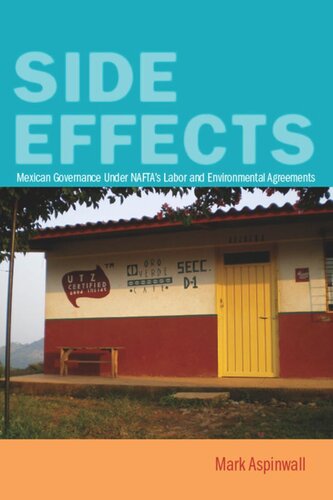

Most ebook files are in PDF format, so you can easily read them using various software such as Foxit Reader or directly on the Google Chrome browser.
Some ebook files are released by publishers in other formats such as .awz, .mobi, .epub, .fb2, etc. You may need to install specific software to read these formats on mobile/PC, such as Calibre.
Please read the tutorial at this link: https://ebookbell.com/faq
We offer FREE conversion to the popular formats you request; however, this may take some time. Therefore, right after payment, please email us, and we will try to provide the service as quickly as possible.
For some exceptional file formats or broken links (if any), please refrain from opening any disputes. Instead, email us first, and we will try to assist within a maximum of 6 hours.
EbookBell Team

0.0
0 reviewsThis is a story about governance in Mexico after the labor and environmental accords—called "side agreements"—that accompanied the NAFTA treaty went into effect. These side agreements required member states to uphold and enforce their labor and environmental laws; though never codified, it was widely accepted that Mexico, in particular, had a problem with law enforcement.
Side Effects explores how differences in institutional design (of the side agreements) and domestic capacity (between the labor and environment sectors) influenced norm socialization in Mexico. It argues that the acceptance of rule-of-law norms in environmental governance can be attributed to participating institutions' independence from national control, their willingness to give citizens access, and the professionalization and technical capacity of domestic bureaucrats and civil society actors. Changes in labor governance have been hampered by union confederations, longstanding corruption, and a closed opportunity structure. Going beyond a simple accounting exercise of resources devoted to enforcing the law, this book comes to grips with how best to strengthen local capacity and promote pro-norm behavior—advances essential to the task of development and democratization.